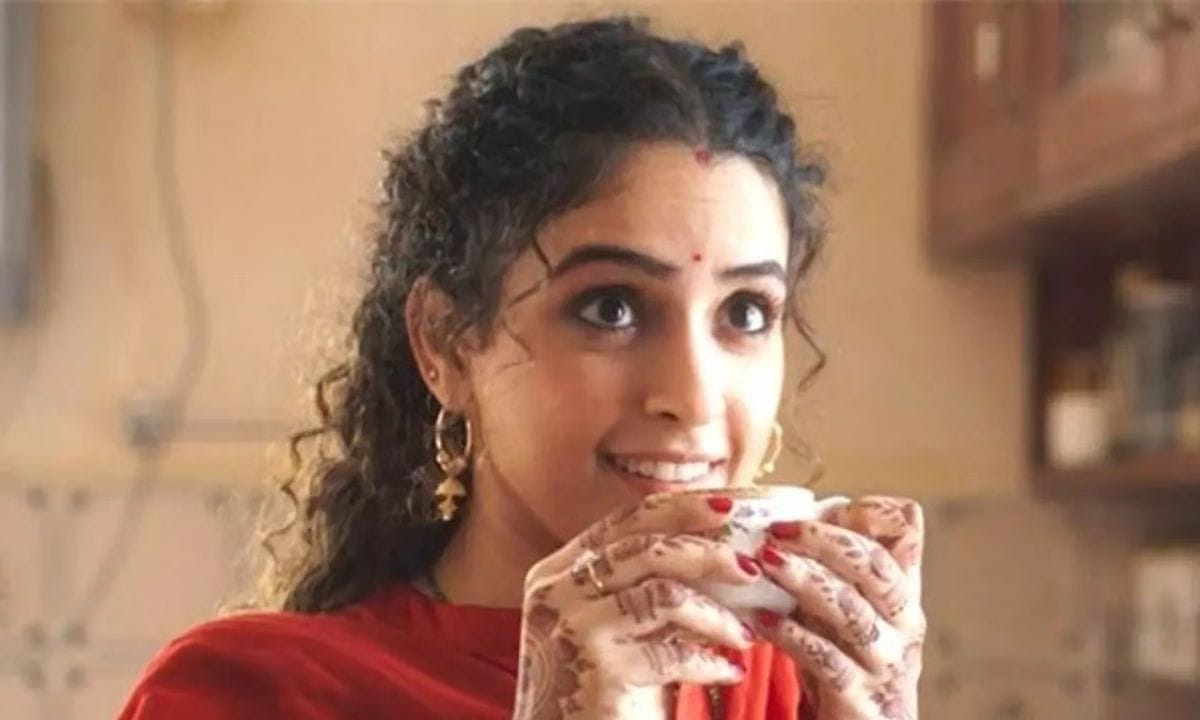Some films serve as an escape from reality, while others confront it head-on. Mrs, starring Sanya Malhotra in the lead role, firmly belongs to the latter category. It doesn’t just tell a story—it holds up a mirror to society’s deep-seated gender biases, making the audience shift uncomfortably in their seats. And therein lies its triumph.
An adaptation of the critically acclaimed 2021 Malayalam film The Great Indian Kitchen, Mrs goes beyond language and regional boundaries to deliver a universally relatable message. While pan-Indian films are often associated with large budgets and extravagant visuals, Mrs proves that true universality lies in the resonance of its themes.
At its heart, Mrs follows the journey of Richa (Sanya Malhotra), a vibrant young woman and passionate dancer, who marries Diwakar Kumar (Nishant Dahiya), a gynecologist walking in the footsteps of his father, Ashwin Kumar (Kanwaljit Singh). What starts as a seemingly happy union soon turns into a slow, suffocating descent into patriarchal expectations. Richa finds herself stripped of her individuality as she is expected to transform into the ‘ideal’ wife and daughter-in-law, confined within the walls of household duties.
The film expertly uses everyday domestic settings to highlight the oppressive norms women are subjected to. Diwakar, who initially appears loving, slowly reveals his ingrained misogyny. He idolizes his mother, who tirelessly caters to the family without complaint—so much so that even her meals are the leftovers of others. His idea of a solution to any problem? The kitchen. His perception of intimacy? Tied to the lingering scent of food on his wife.
The most poignant moment comes when Richa, after toiling in the kitchen all day, refuses sex out of sheer exhaustion. Diwakar dismisses her discomfort, calling the scent of the kitchen ‘the sexiest smell in the world.’ But when she finally asserts her agency, rejecting sex that is centered only on his pleasure, he turns the insult on its head—now claiming she ‘smells like the kitchen’ in a way that makes her unappealing. The irony is chilling: a man trained in women’s health is blind to his own wife’s suffering.
Sanya Malhotra delivers a knockout performance, making Richa’s turmoil palpable. Whether it’s her first overwhelming day managing the household alone or the painful realization of her diminished self-worth, she ensures that every emotion resonates deeply.
Director Aarti Kadav leans into subtle storytelling, ensuring that every frame is intentional and impactful. The screenplay by Harman Baweja and Anu Singh Choudhary is sharp and effective, using seemingly casual dialogues to map character arcs and societal critique. Nishant Dahiya convincingly embodies a husband unaware of his own deep-seated sexism, while Kanwaljit Singh leaves a strong impression as the authoritarian father-in-law. Aparna Ghoshal as Meena, the overworked and submissive mother-in-law, delivers a heart-wrenching performance that underscores the cyclical nature of gender roles.
Mrs is not just a film—it’s an experience that forces reflection. It’s well-crafted, thematically powerful, and visually compelling. More than anything, it urges viewers to question their own roles within their homes and relationships.
After watching Mrs, I, for one, find myself re-evaluating the unspoken dynamics of my household. And that is precisely the impact of great cinema.




